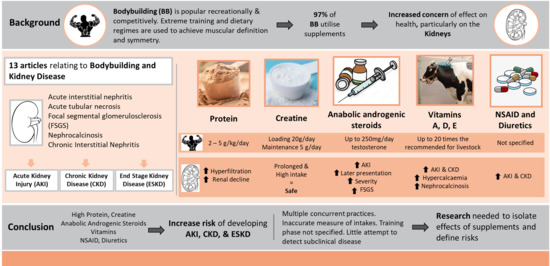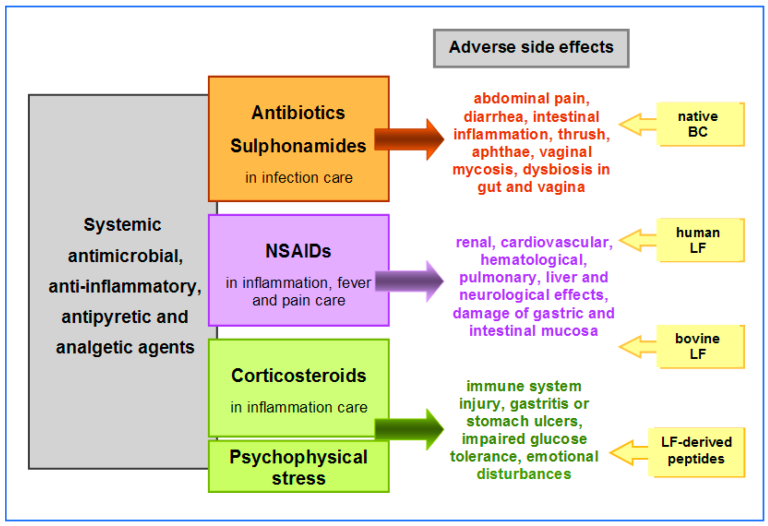Steroids And Bone Health: Examining The Effects And Guidelines
Steroids have long been used in various ways to enhance athletic performance and build muscle mass. However, the use of…
Steroids have long been used in various ways to enhance athletic performance and build muscle mass. However, the use of steroids has also been associated with a range of negative health effects, including damage to bone health. In this article, we will examine the effects of steroids on bone health and explore guidelines for safe use.
Steroid use has been linked to a variety of bone-related issues, including osteoporosis and fractures. Despite these risks, many individuals continue to use steroids for performance-enhancing purposes. By understanding the effects of steroids on bone health and following safe usage guidelines, individuals can mitigate the risks associated with steroid use. Let’s dive into this topic to learn more.

Steroids and Bone Health: Examining the Effects and Guidelines
Steroids are a class of drugs that are commonly used to treat a variety of medical conditions such as asthma, inflammatory bowel disease, and autoimmune disorders. However, steroids are also commonly used by athletes and bodybuilders to enhance their performance and build muscle mass. While the use of steroids for medical purposes is generally safe, the non-medical use of steroids can have serious health consequences, particularly for bone health.
What are Steroids?
Steroids are synthetic hormones that mimic the effects of the male hormone testosterone. Steroids are commonly used to treat a variety of medical conditions such as asthma, inflammatory bowel disease, and autoimmune disorders. Steroids are also commonly used by athletes and bodybuilders to enhance their performance and build muscle mass.
How do Steroids Affect Bone Health?
Steroids can have a negative effect on bone health. Steroids can decrease bone mass and increase the risk of bone fractures. The negative effect on bone health is particularly significant for individuals who use steroids for non-medical purposes, such as bodybuilding.
Guidelines for Steroid Use
If you are using steroids for medical purposes, it is important to follow the guidelines provided by your doctor. Your doctor will determine the appropriate dose and duration of treatment based on your medical condition and other factors.
If you are using steroids for non-medical purposes, it is important to understand the risks associated with steroid use. It is also important to use steroids in moderation and to follow safe injection practices to reduce the risk of infection.
Benefits of Steroid Use
While the non-medical use of steroids can have serious health consequences, there are some benefits associated with steroid use for medical purposes. Steroids can help to reduce inflammation, alleviate pain, and improve quality of life for individuals with certain medical conditions.
Benefits of Steroids for Bone Health
Steroids can also be beneficial for individuals with certain bone disorders, such as osteoporosis. Steroids can help to increase bone mass and reduce the risk of bone fractures in individuals with osteoporosis.
Side Effects of Steroid Use
While steroids can be beneficial for certain medical conditions, they can also have serious side effects. The side effects of steroids can vary depending on the dose and duration of treatment, as well as the individual’s medical history.
Side Effects of Steroids on Bone Health
Steroids can have a negative effect on bone health, particularly when used for non-medical purposes. Steroids can decrease bone mass and increase the risk of bone fractures.
Other Side Effects of Steroid Use
Other side effects of steroid use can include acne, fluid retention, high blood pressure, and mood changes. Long-term use of steroids can also increase the risk of developing certain medical conditions, such as diabetes and cardiovascular disease.
Alternatives to Steroid Use
If you are considering using steroids for non-medical purposes, it is important to understand the risks associated with steroid use. There are alternative methods for building muscle mass and improving athletic performance that do not involve the use of steroids.
Benefits of Alternative Methods
Alternative methods for building muscle mass and improving athletic performance can provide similar results without the negative health consequences associated with steroid use. These methods include strength training, cardiovascular exercise, and a healthy diet.
Professional VS Non-Professional Steroid Use
It is important to note that the use of steroids by non-medical professionals, such as athletes and bodybuilders, is illegal and can have serious health consequences. In addition to the negative effects on bone health, steroid use can also lead to liver damage, infertility, and other serious medical conditions.
Conclusion
Steroids can be beneficial for individuals with certain medical conditions, but the non-medical use of steroids can have serious health consequences, particularly for bone health. It is important to follow the guidelines provided by your doctor if you are using steroids for medical purposes, and to avoid the non-medical use of steroids. Alternative methods for building muscle mass and improving athletic performance can provide similar results without the negative health consequences associated with steroid use.
Frequently Asked Questions
What are the effects of steroids on bone health?
Steroids are commonly used to treat a variety of medical conditions, such as asthma and arthritis. However, they can have negative effects on bone health. Steroids can cause bone loss, leading to an increased risk of fractures. They can also affect the body’s ability to absorb calcium, which is essential for strong bones.
Steroids can also interfere with the body’s natural bone remodeling process, which is necessary for maintaining bone density. This can result in weaker bones and an increased risk of osteoporosis. It is important to talk to your doctor about the potential effects of steroids on bone health and to take steps to minimize these effects.
How can steroid-related bone loss be prevented?
If you are taking steroids, there are several things you can do to help prevent bone loss. First, make sure you are getting enough calcium and vitamin D, either through your diet or supplements. Your doctor may also recommend medication to help prevent bone loss, such as bisphosphonates or teriparatide.
Regular exercise, particularly weight-bearing exercises such as walking or jogging, can also help strengthen bones. Quitting smoking and limiting alcohol consumption can also help improve bone health. It is important to work with your doctor to develop a plan to prevent steroid-related bone loss.
Are there any guidelines for using steroids to minimize bone loss?
There are guidelines for using steroids to minimize bone loss. The American College of Rheumatology recommends that patients taking steroids for more than three months receive calcium and vitamin D supplements, as well as medication to prevent bone loss.
The National Osteoporosis Foundation recommends that patients taking steroids receive a bone density test before starting treatment and regularly thereafter. They also recommend that patients receive medication to prevent bone loss if they have a high risk of fracture.
It is important to talk to your doctor about the potential risks of steroid use and to follow any guidelines or recommendations for minimizing bone loss.
What are the long-term effects of steroid use on bone health?
Long-term use of steroids can have negative effects on bone health. Steroids can cause bone loss, leading to an increased risk of fractures. They can also interfere with the body’s natural bone remodeling process, which is necessary for maintaining bone density.
Long-term use of steroids can also increase the risk of osteoporosis, a condition in which bones become weak and brittle. This can increase the risk of fractures and other complications. It is important to talk to your doctor about the potential long-term effects of steroid use on bone health.
Can steroid-related bone loss be reversed?
If you have experienced steroid-related bone loss, there are steps you can take to help improve your bone health. Calcium and vitamin D supplements can help improve bone density, as can medication to prevent bone loss.
Regular exercise, particularly weight-bearing exercises such as walking or jogging, can also help strengthen bones. Quitting smoking and limiting alcohol consumption can also help improve bone health. It is important to work with your doctor to develop a plan to improve bone health and prevent further bone loss. In some cases, it may be possible to reverse steroid-related bone loss.
How do steroids affect your muscles— and the rest of your body? – Anees Bahji
Overall, the use of steroids can have a significant impact on bone health. While they can be beneficial for certain medical conditions, they can also contribute to bone loss and even increase the risk of fractures. Therefore, it is important to carefully consider the potential risks and benefits before starting steroid treatment.
To mitigate the negative effects of steroids on bone health, there are several guidelines that individuals can follow. This includes engaging in weight-bearing exercise, eating a balanced diet rich in calcium and vitamin D, and avoiding smoking and excessive alcohol consumption. Regular bone density testing can also help identify any potential issues early on.
Ultimately, the key to preserving bone health while using steroids is to take a proactive approach. By working closely with a healthcare provider and following these guidelines, individuals can help maintain strong and healthy bones despite the potential side effects of steroid treatment.







